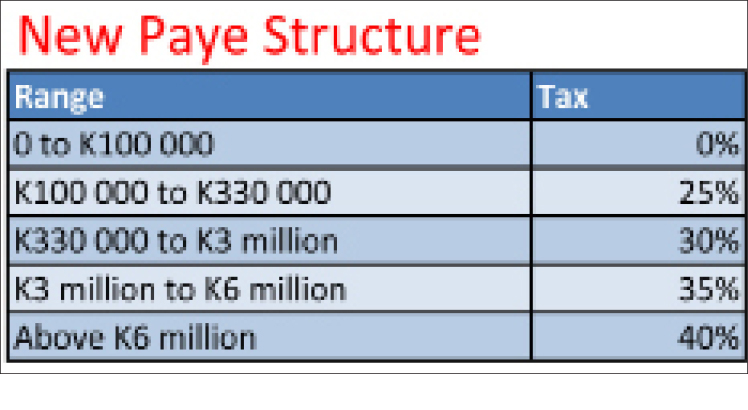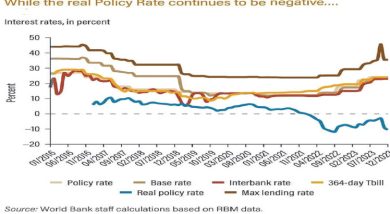New paye structure draws mixed views
The revision of monthly Pay As You Earn (Paye) schedule has drawn mixed views, with the Malawi Congress of Trade Unions (MCTU) arguing the development would eat into employees’ meagre disposable incomes.
In an interview on Monday, MCTU secretary general Madalitso Njolomole said the new brackets will reduce employees’ take-home pay, which he said is already not enough.
In the 2022/23 National Budget Statement presented on Friday in Lilongwe, Minister of Finance and Economic Affairs Sosten Gwengwe justified the revision, saying it is meant to improve the progressivity of the Paye system and also ensure that government continues to collect realistic revenues from the tax line.

The minister maintained the tax-free band at K100 000, but revised other tax brackets with those earning between K100 000 and K330 000 taxed at 25 percent tax, those earning between K330 000 and K3 million to be taxed at 30 while those earning between K3 million and K6 million will be taxed at 35 percent.
Those earning above K6 million will be taxed at 40 percent.
This is a revision from the current financial year’s Paye brackets in which those earning between K100 000 to K1 million are taxed at 25 percent tax, 30 percent is levied on those earning between K1 million and K3 million while those earning above K6 million are being taxed at 40 percent.
Njolomole said the Paye structure will hurt majority of employees who are in the middle-income bracket.
He said: “Employees are already feeling the pinch of the rising cost of living and Covid-19, which has made most employers lay off staff and maintain salaries.
“This will just push unions to start fighting with their employers because our take-home incomes, which are already not enough, will be drastically reduced.”
Centre for Social Concern programmes officer for economic governance Bernard Mphepo faulted government on the new Paye structure, saying this would eat into disposable income for people who are already struggling.
He said: “We believe that reducing Paye marginal tax rates for citizens who receive lower income would spur economic growth.
“It, however, has to be noted that the cost of living is currently at K236 000, as such, taxing 25 percent is just unfair to such low-salaried workers earning less than K230 000 a month.”
But tax expert Emmanuel Kaluluma said in an interview that there many people below the poverty line, as such, government is only trying to provide services to those by taxing the taxable.
“We are in a dire situation where government has no choice but to tax those within taxable tax line to make up for those not taxed. On the other hand, companies are paying less to the employees.
“What we see as a solution to this is that employees should consider starting paying their workers reasonably,” he said.
Employers Consultative Association of Malawi executive director George Khaki said they requested employers to consider revising salaries for their employees to cushion them.
“These new brackets will indeed affect the incomes for employees. This comes at a time the inflationary pressure that the economy is facing is already affecting disposable incomes,” he said.
Khaki said they are also mindful of the fact that some tax measures in the budget such as removal of value added tax on cooking oil have a positive effect on incomes because cooking oil is a basic necessity.
“There is thus a cancelling effect,” he said.
When presenting that budget statement, Gwengwe said taking various demands into account, Treasury had to find a balance to provide fair taxation and at the same time mobilise sufficient resources to deliver public services and spearhead development.
In the proposed budget, domestic revenues are estimated at K1.636 trillion, of which tax revenues are estimated at K1.528 trillion while other revenues are estimated at K107.8 billion. n





